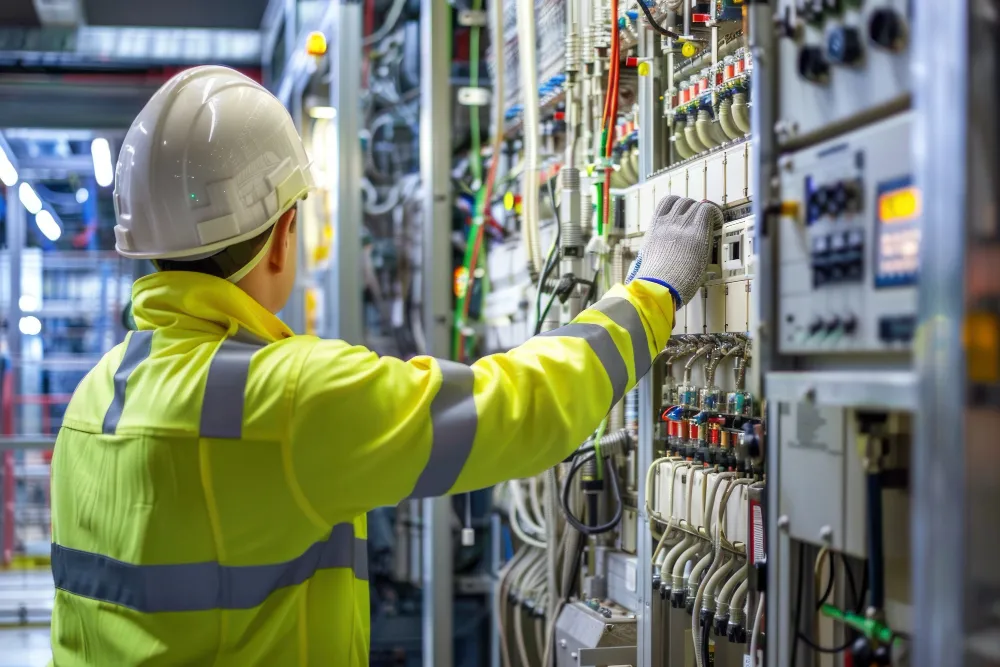The Complete Guide to Expert Support for Commercial Cabling Installations

In an age where digital infrastructure underpins everything from daily operations to future growth, having a robust and well-structured cabling system is no longer optional—it’s essential. Whether you’re building out a new office, upgrading a warehouse network, or managing a campus-wide infrastructure project, the quality of your cabling determines the strength, reliability, and scalability of your entire IT ecosystem.
In this article, we dive deep into what true expert support for commercial cabling installations looks like, why it matters, and what to look for when choosing a provider.
Why Structured Cabling Still Matters
With all the buzz around wireless, cloud, and 5G technologies, it might be tempting to overlook structured cabling. But the truth is, structured cabling is the foundation of a reliable network. It carries your data, voice, video, and power—quietly enabling your business to function at its best.
When done properly, structured cabling:
- Supports high-speed performance for years
- Allows easier upgrades and scaling
- Minimizes maintenance and troubleshooting
- Reduces downtime and costly repairs
Poor cabling, on the other hand, can cripple productivity, limit growth, and result in endless IT headaches.
What Does Expert Support Look Like?
Expert support isn’t just about showing up with a toolbox—it’s about understanding your goals, designing for the future, and delivering with precision.
Here’s what top-tier providers like Turn-Key Technologies bring to the table:
1. Engineering-Led Design
Every commercial space is different—square footage, wall materials, equipment layout, and end-user needs all impact how your cabling should be designed. Experts conduct thorough site surveys to design custom copper or fiber solutions that maximize efficiency, signal clarity, and future scalability.
2. Industry Standards and Certifications
Cabling done right follows standards like ANSI/TIA-568 and ISO/IEC 11801. These guidelines ensure performance, safety, and longevity. A true professional never cuts corners.
3. Copper and Fiber Integration
Whether you need Cat6 for workstations or fiber-optic lines for backbone infrastructure, an experienced provider will specify and install the right materials for the job—with an eye toward bandwidth demand, environmental interference, and redundancy.
4. Clean, Documented Installations
Expert cabling teams label and map every line, organize racks and patch panels, and deliver documentation that IT teams can rely on. This reduces confusion, accelerates future upgrades, and saves costs over time.
5. Future-Proofing
Cabling isn’t something you want to revisit every two years. Top-tier services anticipate growth—more users, more devices, more bandwidth—and design infrastructure that lasts.
The Benefits of Choosing the Right Partner
So what separates a "cable installer" from a strategic technology partner?
Providers like Turn-Key Technologies don’t just install—they plan, manage, and support. Their team of certified engineers, in-house cable manufacturing capabilities, and national reach make them an ideal fit for organizations looking to do it right the first time.
Key benefits include:
- Faster, cleaner installations
- Custom-manufactured cabling built to spec
- Support for both copper and fiber solutions
- Lifecycle services including maintenance and testing
- 24/7 support for critical operations
If you're deploying infrastructure across multiple buildings or campuses, having one consistent partner ensures quality and performance across the board.
Real-World Applications
Office Networks
From conference rooms to open floor plans, structured cabling supports voice, video, and data traffic in ways that are efficient and easy to manage.
Warehouses & Industrial Facilities
Large spaces require strategic routing, secure enclosures, and ruggedized materials. Fiber cabling is often essential to support high-speed data across distances.
Education & Healthcare
These sectors rely on structured cabling for everything from classroom connectivity to telemedicine. Performance, security, and reliability are non-negotiable.
Multi-Site Campuses
Companies expanding to new locations need scalable cabling that integrates smoothly with existing infrastructure. A partner like Turn-Key ensures consistency across all sites.
Key Questions to Ask Your Installer
Before signing a contract, ask:
- Do you follow ANSI/TIA and ISO standards?
- Will you provide documentation and labeling?
- How do you test and certify cable runs?
- Do you offer fiber as well as copper?
- Can you support future growth in devices and bandwidth?
If these questions stump your provider, keep looking.
Final Thoughts: Build for What’s Next
Structured cabling might not be something you think about daily, but it powers everything from your internet connection to your phone systems and security. In today’s tech-driven business world, it plays a make-or-break role in connectivity and productivity.
As businesses grow, so does the need for faster, more reliable networks. Investing in expert support for commercial cabling installations is one of the smartest moves you can make. It ensures your infrastructure is designed with performance and longevity in mind.
- Choose partners with engineering-first design
- Ask about compliance with cabling standards
- Plan for future bandwidth and device growth
Your network infrastructure should be built to last—and built right the first time. With professional cabling support, you’ll be prepared for tomorrow’s technology without sacrificing today’s performance.